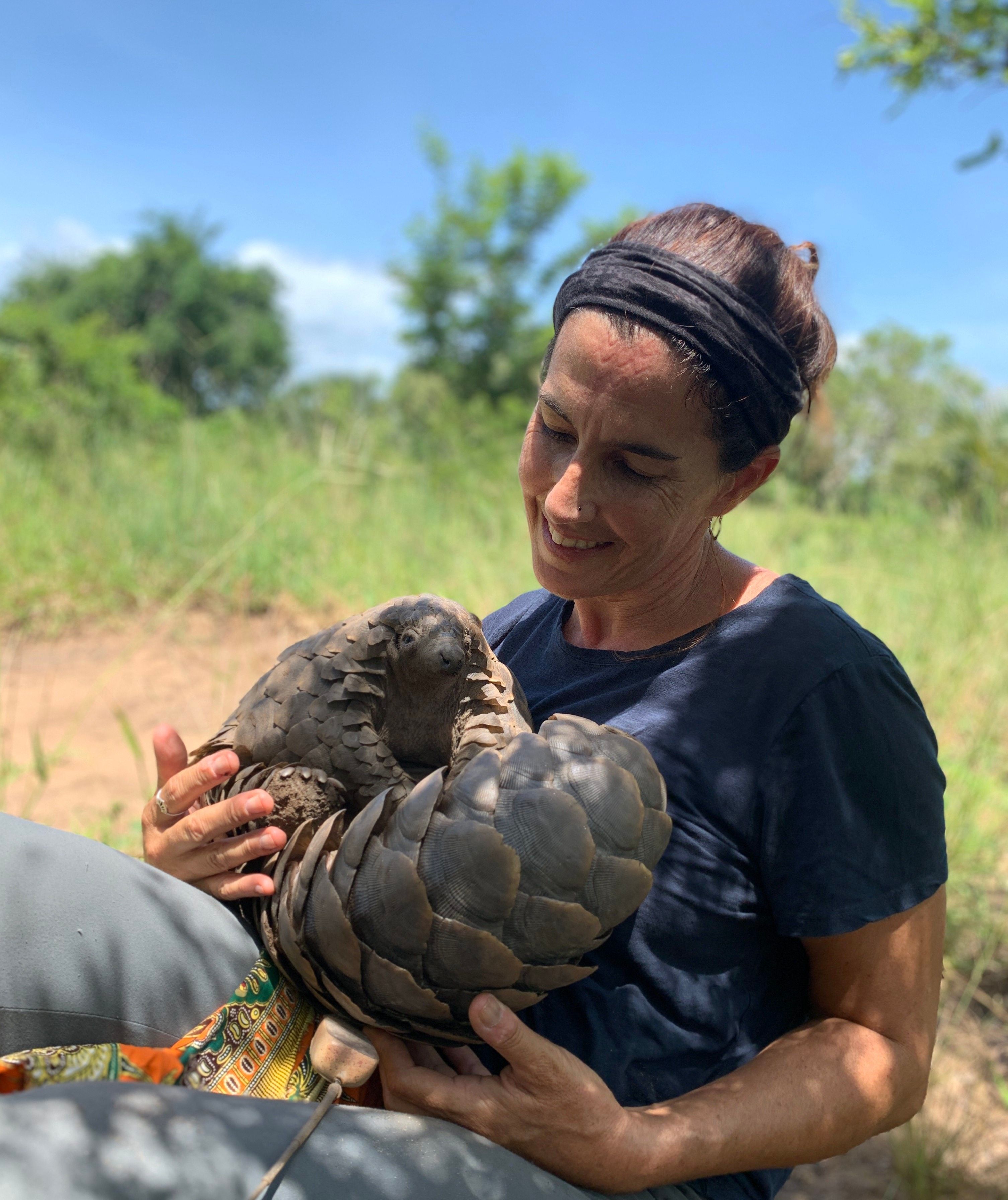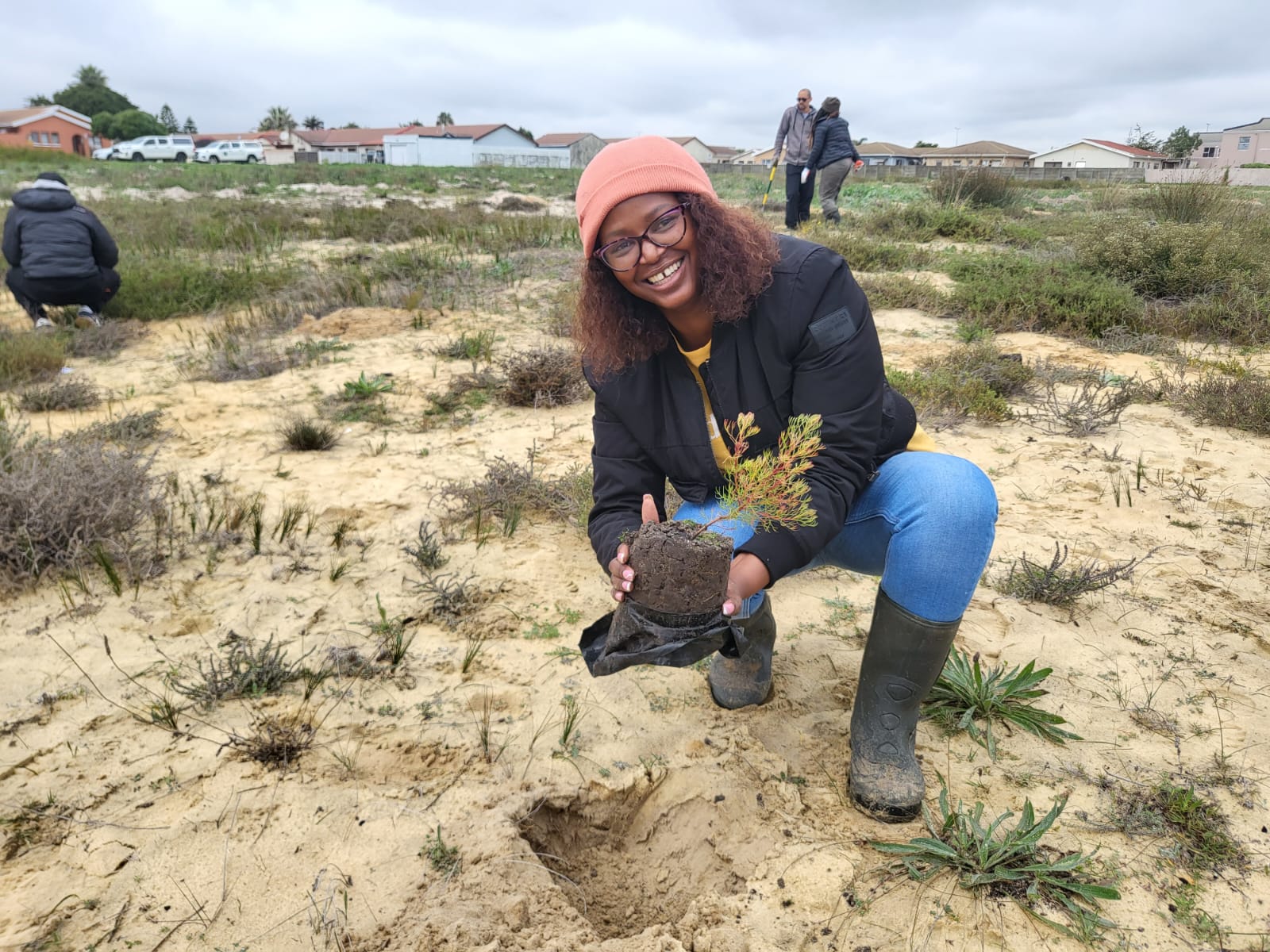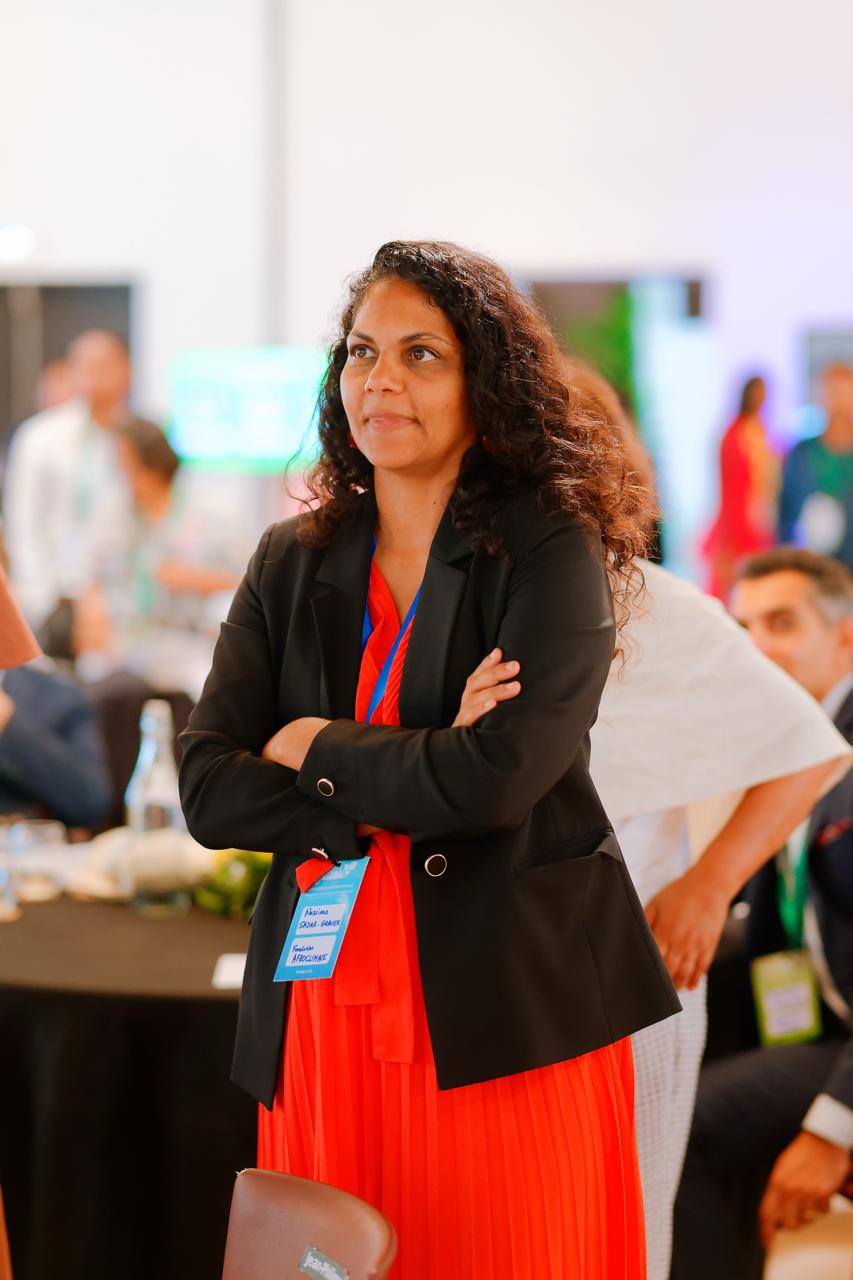Power pushes back. And so some of us have to be unpopular. Some of us have to navigate those spaces. Some of us want to. The challenge is to figure out how.
Healing what is broken sometimes means confronting the powerful systems that caused the breakage. It is not for the faint-hearted. The easier option is avoidance. But for Paola Bouley, the only way out is through. And so she fights. Even when the odds are stacked against her. Even when it means standing alone.
Paola is an ecologist and conservationist with 20+ years of experience in biodiversity research and designing and implementing knowledge-driven conservation solutions.
Her background and expertise include marine and terrestrial systems, endangered species recovery, human-wildlife coexistence, protected area management, and conservation technology.
In 2021, Paola and her partner, Rui, founded the Malamba Coastal Collaborative and ASSOCIAÇÃO AZUL – Conservação da Biodiversidade, Moçambique, which work across a range of key biodiversity areas alongside a team of community partners and colleagues sharing a commitment for authentic and socially-just approaches to the restoration and protection of marine and terrestrial ecosystems.
The Women for the Environment 2022 fellow shares insights from her journey with Damaris Agweyu.

Paola, your LinkedIn profile has a compelling statement: "I believe in the power of the collective to heal what is broken". Can you unpack that?
I came to that statement after joining WE Africa.
As women, we are operating in very broken, dysfunctional systems. The conservation space, in particular, calls for healing. And often, as women working in this space, we feel alone as we confront these challenges.
I believe that together, we can heal landscapes, species, populations and the systems in which we are currently functioning. Actually, the systems require a revolution, not healing, but I use healing more broadly to describe the needed transformation.
Do you feel it's uniquely women who can heal what's broken?
I believe we have an extraordinary role to play in that healing. But it's not just up to women. I'm fortunate to have male partners who support me and understand the world as I do. But because women have been pushed out of the spaces, they must be at the forefront of this transformation.
At this stage in my life, it's evident that there are two deeply rooted systems at work that, in a very short time span, have wreaked havoc on our planet and with our people: capitalism and patriarchy.
I know these are blanket terms, but it boils down to this gross imbalance of power and the extractive mode destroying the very fabric of existence—the miracle of life.
Institutions and organisations have failed to protect women and prevented them from leading authentically. It's trendy to say that you support women's rights and leadership. But in many of these institutions, this stance is just a fundraising tool. I've had to confront that, and it's been very challenging because it's uncomfortable to talk about it.
How do we raise our voices in a "constructive" way? A way that doesn't isolate people? These are challenging topics, yet we must address them. The structures holding power will not yield. Not without a fight.
It's not in their interest.
At all. Power pushes back. And so some of us have to be unpopular. Some of us have to navigate those spaces. Some of us want to. The challenge is to figure out how.
I believe in well-being and positivity, and in radiating light and love. It is essential to our nature. And yet, at another stage, we have to fight. I've tried to appeal to reason, even with my privilege and positions. And I've hit that wall. I've dug in personally and wondered if I'm the problem. And while it's a good thing to check yourself, we should not have to carry the burden individually. We must free ourselves from the systems we're embedded into willingly or unwillingly and create new spaces. It's like destruction and creation at the same time.
Are you comfortable with being unpopular?
I've always been a loner by nature, so sometimes I think I'm unpopular. Am I comfortable with it? No. Is it necessary in a case like this? 100%. The necessity to see change is more powerful than my desire to be comfortable.
My biggest challenge is communicating my vision and values in the spaces I operate. In professional settings, it becomes challenging to contribute new ideas because I'm afraid of being isolated. I don't want to be perceived as combative or counterproductive.
So how do you bring some of the most challenging issues to the table in authentic but non-combative ways?
This is my current biggest struggle. Avoidance is not an option. I just hope I have time. I don't want to die with the regret of thinking I should have done more.
Did you end up in the conservation field by design or by default?
By nature and by design. I am trained as a scientist, but I don't only want to study the natural world; I look at it as my calling to provide healing. It's like that family member you can't stand to see in pain; that's how I feel in my work.
I grew up in South Africa, and as a child, I was always running around the bush. And again, something of a loner, but never alone because I felt very connected to the living world around me. I knew I wanted to be a conservationist by age ten. I remember giving a presentation to this effect in school. But then, the next ten years provided me with a completely different landscape. I lost my connection to nature and my essential being. I dropped out of high school when I was sixteen and left home when I was seventeen. Then I got into astronomy and started volunteering at a telescope observatory. I got hypnotised by the stars.
And then, I wanted to return to school, but I couldn't do this in South Africa because that mechanism didn't exist. I packed my backpack and flew out to California. My mission at the time was to go back to school and become an aeronautical engineer.
I finished high school on the West Coast of California and, through a poetry class in community college, was re-introduced to my roots. Within a semester, I dropped this absurd idea of engineering and took up biology. I didn't look back.
I did my undergraduate and master's in marine biology and volunteered extensively for state and national parks. Then I moved into community-based restoration of forests and wild salmon rivers.
At some point, I began to miss home. I've always been nomadic yet firmly rooted wherever I am. So while the West Coast of California is home, Southern Africa is home too.
One of the fellows from WE Africa’s first cohort, Rachel McRobb opened a door for me to work with carnivores in Zambia through the Zambian Carnivore Programme. I never worked with her, but she dropped a valuable key for me. Later, I learned about a project in Mozambique, where I ended up working for the next ten years. Nothing had prepared me for what I would do or encounter. One of the most challenging times of my life was navigating such a dysfunctional organisation.
I was an incredibly high performer, passionate about everything I did. But about two years before I resigned, I started collapsing. I'm still recovering, but again, the opportunity for creation came in that sort of destruction.
After resigning, I set up a new organisation with my partner. We're doing work that calls us but in a very purposeful way.
Tell me more about your decision to leave this dysfunctional work environment.
People talk about burnout like it's about working too hard. But I've heard it said that it's more about working in a system that doesn't respect your values, which is what happened in my case.
It was bad. I was even contemplating suicide. And yet I couldn't identify what was eating at me. I was in the best job in the world. Doing what I love and doing it well. And yet I felt broken.
A toxic environment eats at you daily. It gags and suffocates you. And you pack it all away. But you get to a point where you can't survive anymore.
I reached out to a coach for help. And that triggered a gradual process of slowing down. I dropped the reactive mode and started listening to my gut. At one point, I asked my coach what intuition is, which was a ridiculous question. Because my intuition is everything. But that's how broken I was; I couldn't access that deeper part of me.
What did you learn from that experience?
I tend to become very attached to the mission; so passionate about my work that I make the organisation an integral part of who I am. I think that's natural when you want to be part of something bigger than yourself. But when it comes to organisations, especially those whose values are not aligned with ours, we should be cautious.
I am me, you are you, we are we, but we are so much more than any individual organisation or institution.
Those of us who were facing the challenges believed that if we just buckled down, worked harder and modelled the values and behaviours we wanted to see, we could change the system of power. It took years to figure out that the more we confronted that power, the more it pushed back on us. Dealing with this can be traumatic. And then you realise you have more energy, leverage, and moving room to tackle some of these issues from the outside, which is what I did.
It took me a long time to recover, and I did it with the help of my coach and WE Africa sisters.
And so I have learned to trust my intuition because I don't believe it ever lies. It knows what's right and wrong for you and protects you at that fundamental level.
How has the WE Africa journey impacted you?
One of the biggest lessons I've learned is that I'm not alone. While you are doing the hard work, day in and day out, you feel isolated, thinking that some of the issues you confront are unique to you. But once you connect with others in this space, you realise how much we have in common. And it's in those commonalities that our power lies. So WE Africa has been a critical anchor for me. It's like a double-edged sword though, because while this gives me some comfort, I feel angry that many of us are still confronting these issues. It confirms the fact that significant changes need to happen.
The thing that gives me hope is the growing network. It's been lovely to see all these strong women working in their respective fields across the continent, trying to change things.
It's also been a deeply personal journey in terms of following the leads. So when a sister makes a comment referring to a relevant book, article, or podcast, I follow those leads. And each lead takes me to this bigger world out there. I see there are teachers all around us, and there's a shift taking place. This has been very nurturing.
***
This interview is part of a series profiling the stories of the 2022 WE Africa leadership programme fellows, African women in the environmental conservation sector who are showing up with a strong back, soft front, and wild heart.




